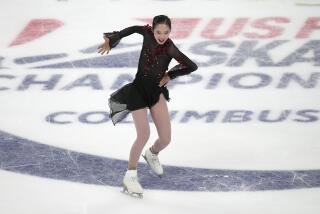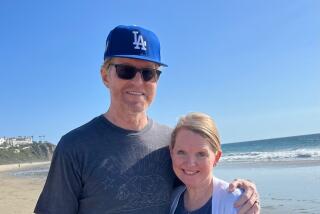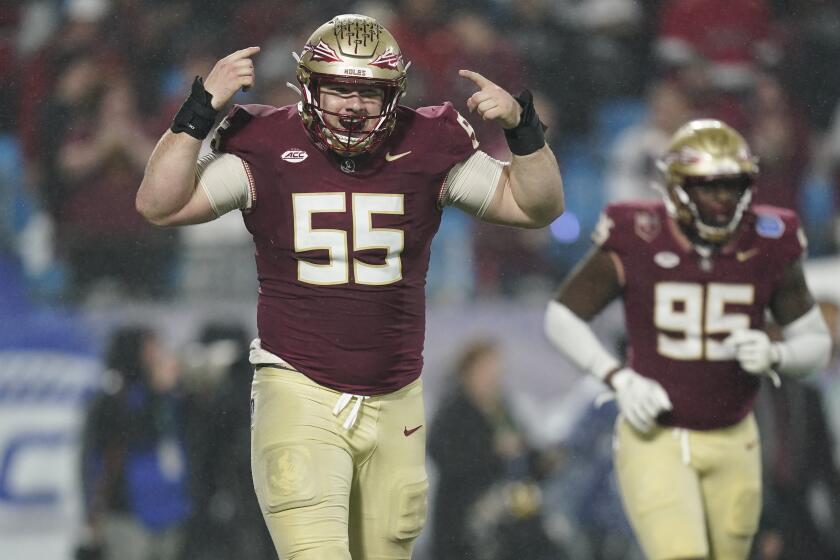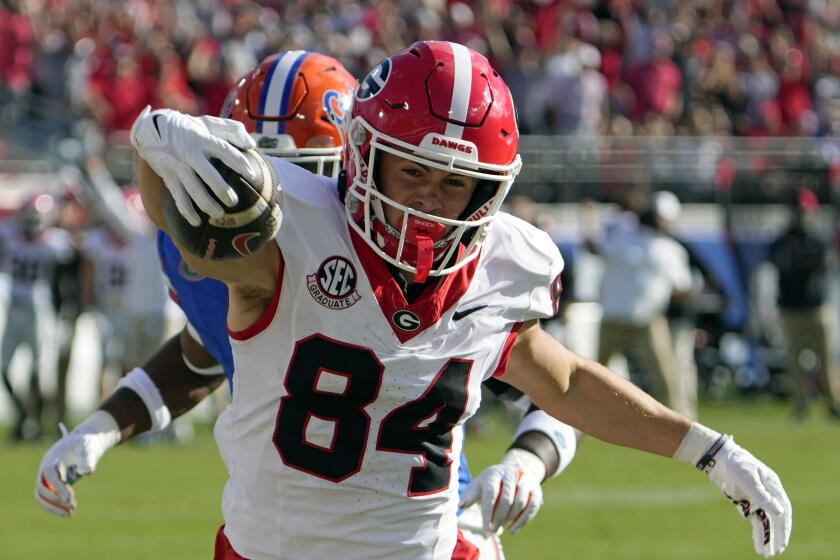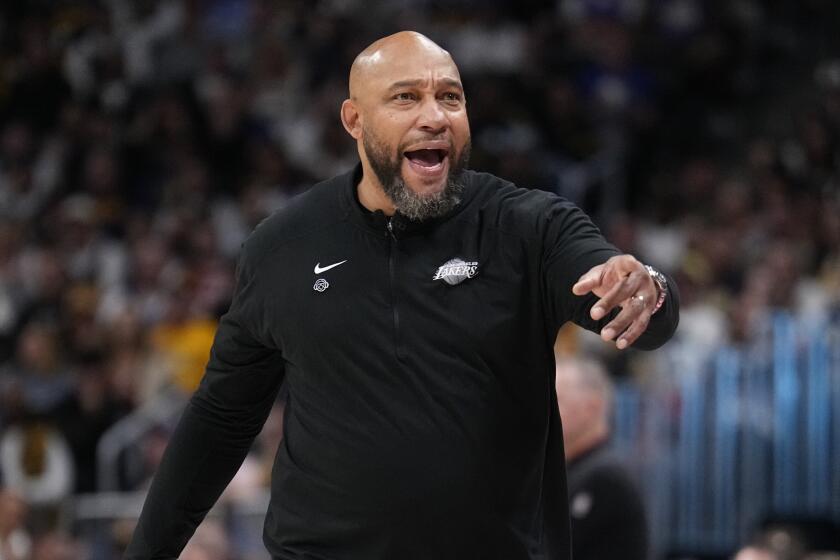For skating champ Johann Olav Koss, it’s just the Right thing to do
Never heard of the guy, and he’s not a Laker or Dodger, so what do I care?
Probably the same for you — you’re going to read a headline or see a picture of him, and I’ll be amazed if you get this far.
Yet they tell me he was on the cover of Sports Illustrated as big shot of the year. He’s also some kind of skater, so how can he really be a big shot?
A friend asks if I will do him a favor and meet the skater. Yes, I have friends, but not many, so I cannot afford to blow him off.
I sit down with Johann. First Johann I have ever met. And if they are all like this, I will make a point of meeting more. This one mesmerizes and touches places where most folks never wander in thought, let alone with a visit.
They talk about special human beings, but it really means little until you meet one. A real-life hero. Everyone is special, of course, but Johann Olav Koss has taken it to another level.
ESPN has made a movie about hope and how Koss and his Right To Play organization are changing the world. It will air on ABC next Saturday at 2, but I’m curious whether he’s already seen it.
“I show it every night to my wife,” he says, and if you wear those skin-hugging tights to speedskate, you better have a sense of humor.
He won four Olympic gold medals dressed like that for Norway almost two decades ago, and really I don’t give a rip.
He might be as big as they come back home in the hinterlands, but if I want to write about blips on the sports radar screen, there’s always Bonnie Blair or Apolo Ohno.
“Children who are suffering . . .” Koss begins, and he knows how to get someone’s attention. “It’s just their luck they were born where they were; it’s like our kids won the lottery.
“If you believe that school work and play is good for your own child, can you imagine a child who is denied that? Imagine that child becoming a sex slave, suicide bomber or terrorist. What would you do if you could stop that?
“The worst thing I know is apathy,” he says.
For the next hour, and later that night, all he talks about is children, children everywhere and how it really is possible to make their lives better.
As the title of the ESPN movie proclaims, a “Right To Play” should be a given for children and, if deprived, is an incalculable loss.
The Right To Play website (righttoplay.com) drives the point home — directly to your own home: “Do you remember playing and how you learned to be a part of a team and how it felt when you scored? How it felt to have fun?”
And if you understood what he’s already accomplished, you wouldn’t roll your eyes at what he has to say next.
“I was 11 when I decided I wanted to do good,” Koss says. “I decided I was going to be like Eric Heiden, I was going to be a doctor like my parents and help children in Africa. I was very clear about that and told my grandmother.”
He does it all. He’s so big in Norway, he asks his countrymen to donate money to aid children for every gold medal won. Norwegians respond with $18 million in less than a week.
Later he gets his medical degree. Now he’s boss man of a titanic effort to bring the joy of sport to disadvantaged children. These are children who have no idea what he’s accomplished beyond bringing them some soccer balls, coaches and a chance to be just a kid.
“I went to Eritrea just before the Olympics on a humanitarian trip. I spent time with orphans who had their own dreams and were never going to have the chance to realize them,” he says. “It motivated me to skate faster; why should I waste my talent when I’ve been given all these opportunities?”
Sounds great, inspiring and all that, until later when he takes a shipment of soccer balls to Africa. Right away he’s criticized and ridiculed for his do-good naivete, taking soccer balls to starving kids.
“The headline in the newspaper read: ‘What an Idiot.’ That’s when I got nervous,” says the crusader. “No one had ever called me an idiot before and certainly not on the front page.”
When he tries to apologize to the president of Eritrea, he’s told: “This is the most beautiful gift we have ever received. Finally we are being seen as human beings. We are more than mouths to feed. We, too, have dreams for a better future.”
And now the red soccer ball, which carries the words “Look after yourself, look after one another,” has become a symbol of Right To Play’s outreach — 800,000 kids and 15,000 coaches involved in weekly activities in more than 20 countries.
Grandmother would not be surprised.
Yet a million miles away, it’s still hard to relate. A civil war in Sierra Leone. Where’s that?
A young girl, one of thousands, maybe 8 years old, is abducted by rebels to cook and be a sex slave.
“Imagine a gang in L.A. taking your daughter and not knowing what happened to her for seven years,” Koss says.
The war ends, she returns to her village with her baby. She’s been the enemy; her parents are slow to welcome her. Her baby is unacceptable.
“I find her sitting in a house with no roof, 16 girls and five sewing machines, her cute kid by her side,” Koss says. “She’s 15 and she’s depressed.
“We bring in coaches and get the girls who aren’t sewing playing a game. Then you hear it for the first time: laughter. And you see a spark. There are rules to learn, goals set and in time she’s playing on a team. She’s accepted.
“Later I get a nice letter, some tiny scribbling, and she’s excited about going back to school,” he says. And what did you do today to make the world a better place?
More to Read
Get our high school sports newsletter
Prep Rally is devoted to the SoCal high school sports experience, bringing you scores, stories and a behind-the-scenes look at what makes prep sports so popular.
You may occasionally receive promotional content from the Los Angeles Times.
